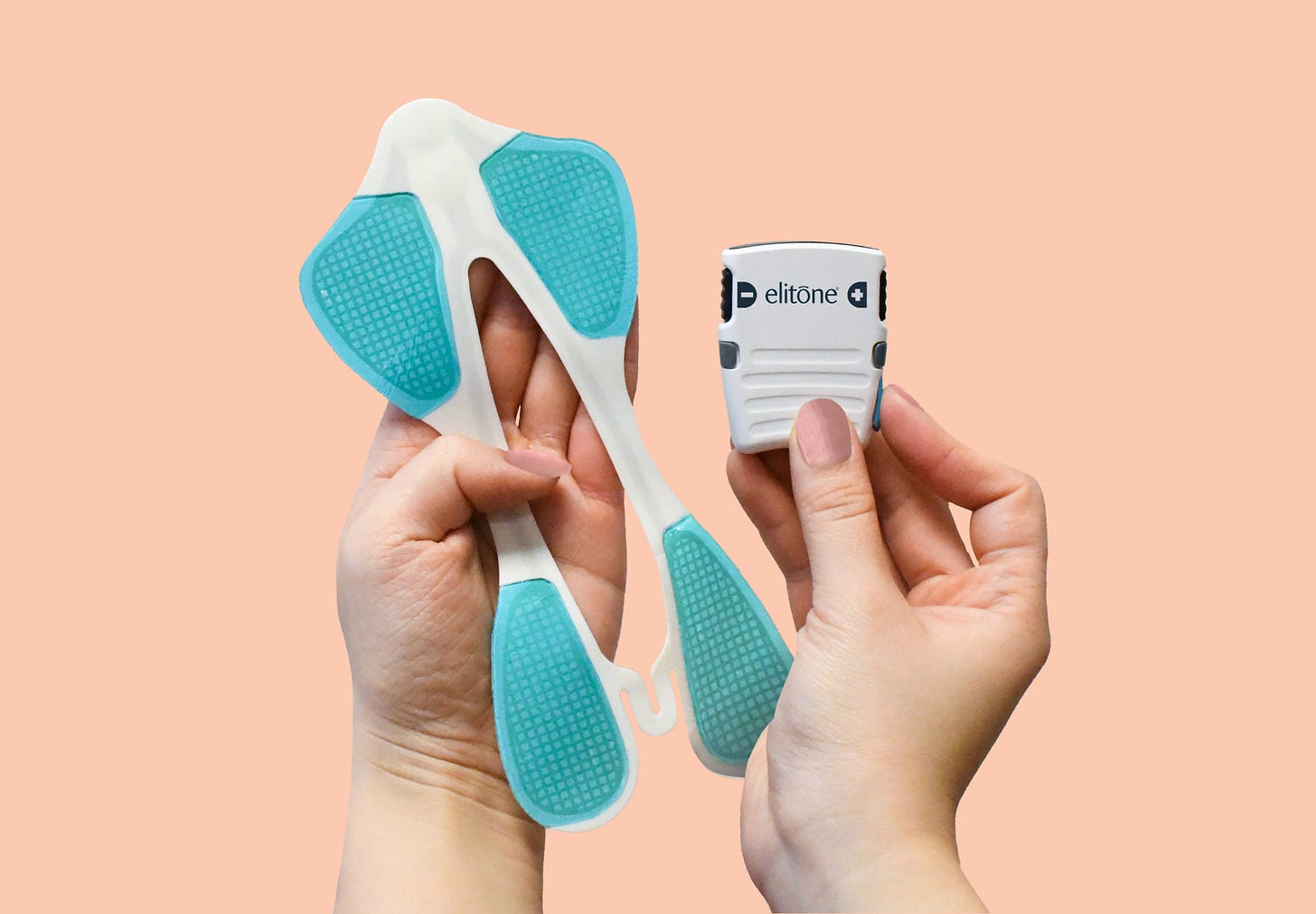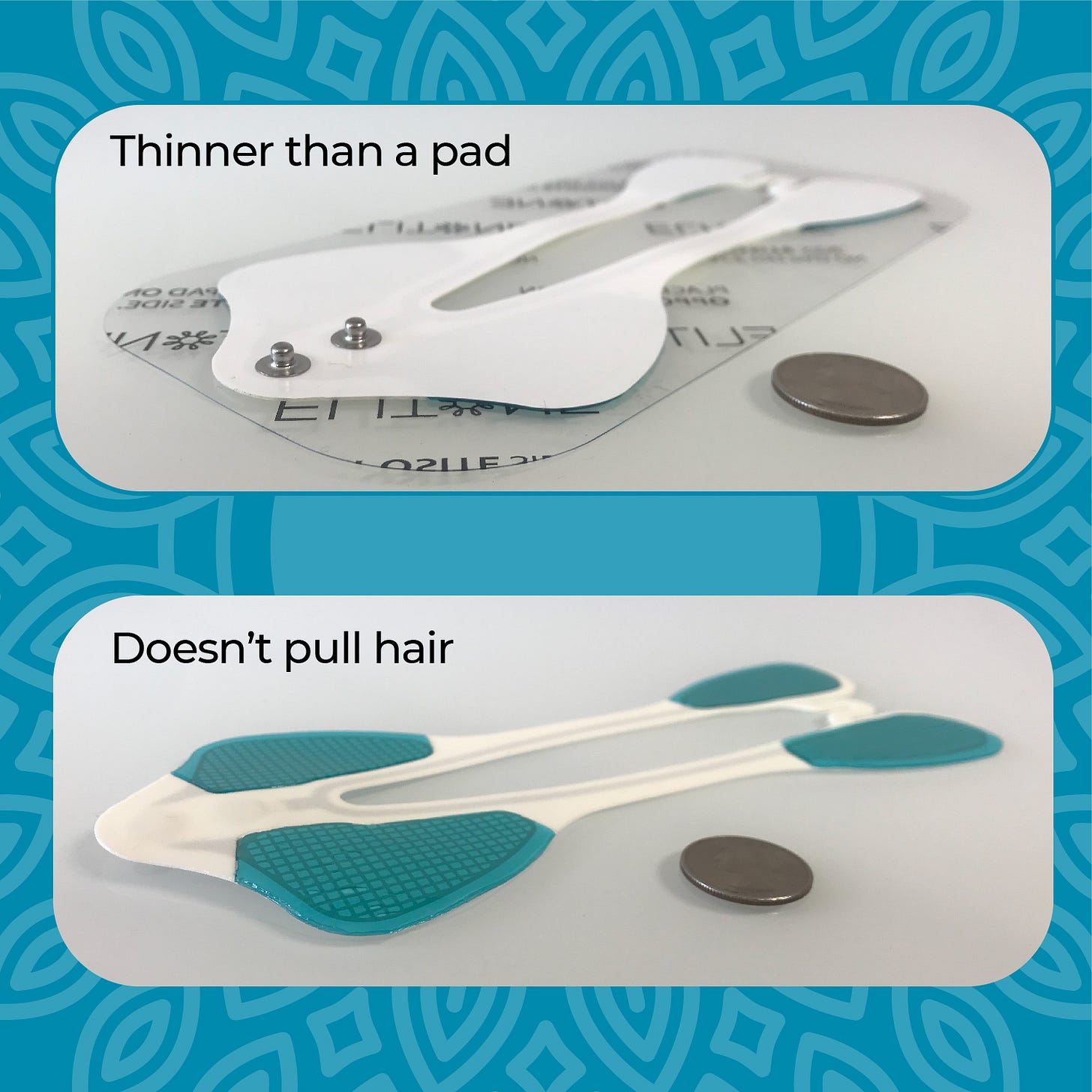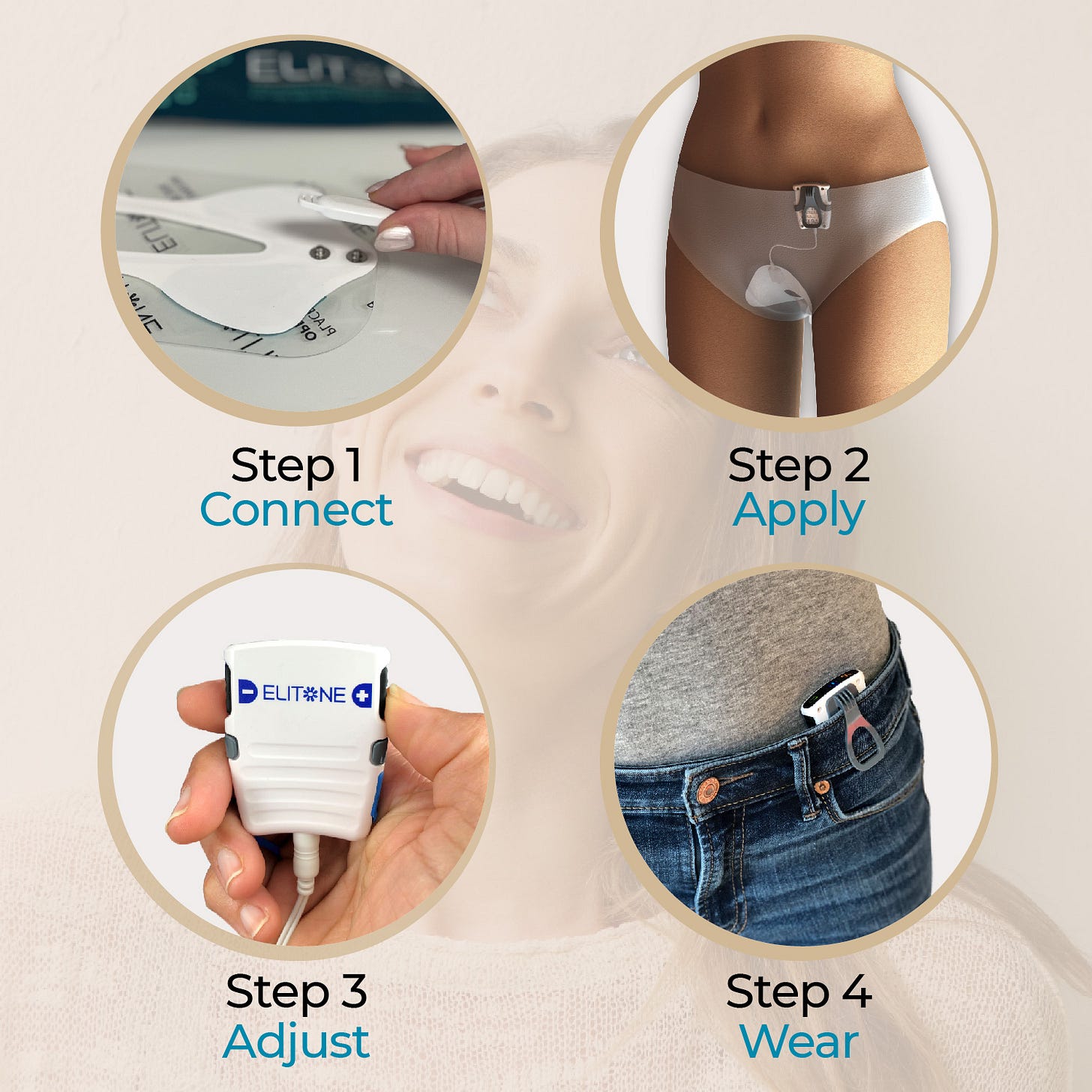How to gain control of your bladder while running
This non-invasive device claims to be the answer
Bladder leakage is a problem that affects millions of women worldwide, often interfering with their ability to run, jump, and maintain an active lifestyle. According to the NHS, around 14 million people in the UK suffer from bladder problems, with women being disproportionately affected - especially after childbirth and menopause.
Despite this, many women suffer in silence, either too embarrassed to seek help or believing that treatment options are invasive, time-consuming, or ineffective.
Speaking from my own experience there is also a general feeling among women that it is just another thing we have to put up with like period pain and menopausal flushes.
But that isn’t necessarily the case. There are now a growing number of pelvic floor products to choose between and women are realising that they don’t have to suffer in silence.
Gloria Kolb, CEO of Elitone, knows this struggle first hand. A biomedical engineer and mother of three, she created Elitone, a non-invasive pelvic floor muscle stimulator, to provide women with an easy, comfortable way to regain bladder control.
The FDA-approved device is designed to be discreet and effective, making it a potential game-changer for female runners and active women. Rather than being a device that is inserted inside the vagina like a Kegel ball, it sits outside, sending an electrical pulse which causes the muscles to contract.
I spoke to Gloria about how her innovative device is helping women reclaim their confidence.
From personal struggle to innovation
Gloria’s journey with bladder leakage began after the birth of her children.
"My first baby was nine and a half pounds, and then I had 13 pounds of twins, and I was active. But when I first started to leak, I ignored it - like most women. We just start wearing pads," she recalled.
She tried Kegel exercises but found them difficult to perform correctly and consistently. Pelvic floor therapy helped, but it was time-consuming and required dedicated effort. Gloria found that most available solutions were vaginal inserts that required women to lie down for extended periods which she felt was impractical for busy mothers and active women.
That frustration led Gloria to research alternative solutions. "We saw some research out of Brazil that showed TENS patches placed by a doctor precisely in the perineal area worked just as well as the vaginal devices. But, you know, that’s eight wires coming off and requiring precise placement. We figured if we could make it easy for women to use at home, on the go, we would have a winner."
How Elitone works
Elitone is a discreet non-invasive device designed to be worn under clothing. The gel pad is placed externally on the perineal area, sending gentle electrical stimulation to the pelvic floor muscles.
"It does 100 contractions in a 20-minute period - longer and stronger than you can on your own," Gloria explained. Unlike traditional Kegels, which can be challenging to perform correctly, Elitone claims to provide consistent, effective muscle activation without requiring conscious effort.
Another key advantage is its ease of use. "It’s super simple- just two buttons. Women can clip the small controller to their underwear and go about their day. No one needs to know they're getting a treatment," Gloria explained.
Running protection
For runners, in particular, bladder leakage can be a significant barrier to training and competition. Many are forced to modify their routes, avoid long runs, or wear protective pads - all of which can be uncomfortable and demoralising.
It is a common topic of discussion among the female runners I coach and I have first hand experience of shooting off at the beginning of a race only to find my knickers wet minutes later.
Many women wait years before seeking help - with the average time being 11 years. They try and fail to incorporate pelvic floor exercises into their daily routine, and find it difficult to access a specialist within the NHS.
For many women, the condition impacts more than just exercise. "It starts small, but over time, it affects everything—people stop running, traveling, even being intimate with their spouse. We had one grandmother say she stopped hugging her grandkids because she didn’t want them to smell anything. It’s deeply tied to quality of life,” explained Gloria.
While it comes at a fairly hefty price tag of £332.50 Elitone has the potential to be life changing. Users typically see improvements within four to six weeks.
"We recommend using it five times a week initially. Most women notice a difference by week four, but we suggest a six-week initial treatment period. After that, they can move into a maintenance phase - maybe a few times a month. If they start to leak again, they just do five sessions or so," said Gloria.
Elitone has already made a significant impact, with over 30,000 users in the U.S. and multiple clinical studies supporting its effectiveness.
"We launched in 2019 right before COVID, but we’ve been growing ever since. We’ve been shipping to the UK and will soon be available in Boots and Currys, making it more accessible to women who need it," said Gloria.
In the meantime the product is available via Pharmacy2U.
As someone who suffers from bladder leakage particularly during a warm-up that involves jumping or skipping I am keen to test out Elitone to see if it lives up to its claims. I will report back in a future edition of Running Matters!
Pick of the Week
I have been testing a range of running hydration vest for Live for the Outdoors (see my previous reviews on trail shoes and waterproof jackets). So far my favourite has been the Harrier Curbar 5L. It has loads of pockets, is incredibly roomy and comes in a range of sizes. A big, big bonus is that it actually fits me! So many hydration vests are designed for men and don’t come in small enough sizes which is a huge bugbear of mine. But Harrier vests are available from XXS to XL (I have the XS). The vest is also half the price of some of its competitors so is really good value for money.
Thanks for reading this week’s newsletter. If you have any running news for me, let me know! Send feedback to lilycanter@yahoo.co.uk or suggest topics you’d like me to cover.









